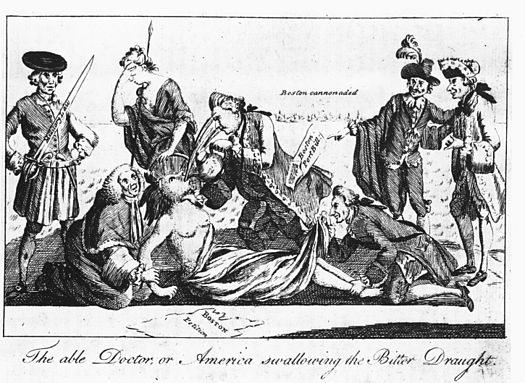It happened today - June 2, 2016
 On June 2, 1774, the British Parliament passed the fourth of the Intolerable Acts, the Quartering Act. No wonder the American colonists objected… being English.
On June 2, 1774, the British Parliament passed the fourth of the Intolerable Acts, the Quartering Act. No wonder the American colonists objected… being English.
It was in fact the second Quartering Act, the first being given Royal Assent on May 15 of 1765. And colonists found that one passing strange, and ominous, noting that there had been no standing army in the colonies for protection against the French before the Seven Years’ War broke their power in North America. So who, exactly, was the enemy the British government regarded as even more dangerous and against whom they needed to have a non-citizen armed force ready and on the spot?
The updated 1774 version, pretty clearly, was aimed specifically against citizens who, in keeping with their ancient rights tracing back to Magna Carta and beyond, were objecting to being taxed without representation. It was not the most hated of the “Intolerable Acts,” which would have taken some doing given that the others were the Boston Port Act, Massachusetts Government Act and Administration of Justice Act. But it certainly seemed to fit a pattern denounced by the most radical or, from an Establishment point of view, paranoid.
It’s important to grasp here that the British Bill of Rights of 1689 specifically denounced James II for “raising and keeping a standing army within this kingdom in time of peace without consent of Parliament, and quartering soldiers contrary to law”. And the struggles with the Stuarts both before and after the Civil War, execution of Charles I, Commonwealth and Restoration had as a vital component a bitter tussle over whether armed force should remain in the hands of the people or be concentrated in those of the state.
In asserting the former the “American” colonists were not breaking with British tradition but standing on it. The same tradition on which Canada was founded in a period, following the American Revolution, when the British government abandoned such irregular actions and the philosophy of state supremacy over citizens that did indeed lie behind them.